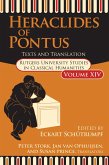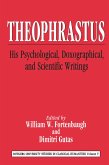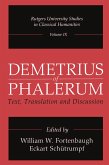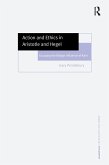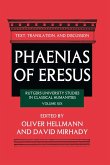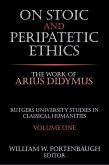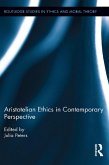Heraclides' interests were diverse. He wrote on the movements of the planets and the basic matter of the universe. He adopted a materialistic theory of soul, which he considered immortal and subject to reincarnation. He discussed pleasure, and like Aristotle, he commented on the Homeric poems. In addition, he concerned himself with religion, music and medical issues. None of Heraclides' works have survived intact, but in antiquity his dialogues were much admired and often pillaged for sententiae and the like.
The contributions presented here comment on Heraclides' life and thought. They include "La Tradizione Papirologica di Eraclide Pontico" by Tiziano Dorandi, "Heraclides' Intellectual Context" by Jorgen Mejer, and "Heraclides of Pontus and the Philosophical Dialogue" by Matthew Fox. There is also discussion of Heraclides' understanding of pleasure and of the human soul: "Heraclides on Pleasure" by Eckart Schutrumpf and "Heraclides on the Soul and Its Ancient Readers" by Inna Kupreeva. In addition, there are essays that address Heraclides' physics and astronomical theories: "Unjointed Masses: A Note on Heraclides Physical Theory" by Robert W. Sharples; "Heliocentrism in or out of Heraclides" by Paul T. Keyser, "The Reception of Heraclides' Theory of the Rotation of the Earth from Posidonius to Simplicius: Texts, Contexts and Continuities" by Robert B. Todd and Alan C. Bowen, and "Heraclides of Pontus on the Motions of Venus and Mercury" by Alan C. Bowen and Robert B. Todd. Finally, there are essays that view Heraclides from the stand point of ancient medicine, literary criticism and musical theory: "Heraclides on Diseases and on the Woman Who Did Not Breathe" by
Dieser Download kann aus rechtlichen Gründen nur mit Rechnungsadresse in A, B, BG, CY, CZ, D, DK, EW, E, FIN, F, GR, HR, H, IRL, I, LT, L, LR, M, NL, PL, P, R, S, SLO, SK ausgeliefert werden.



